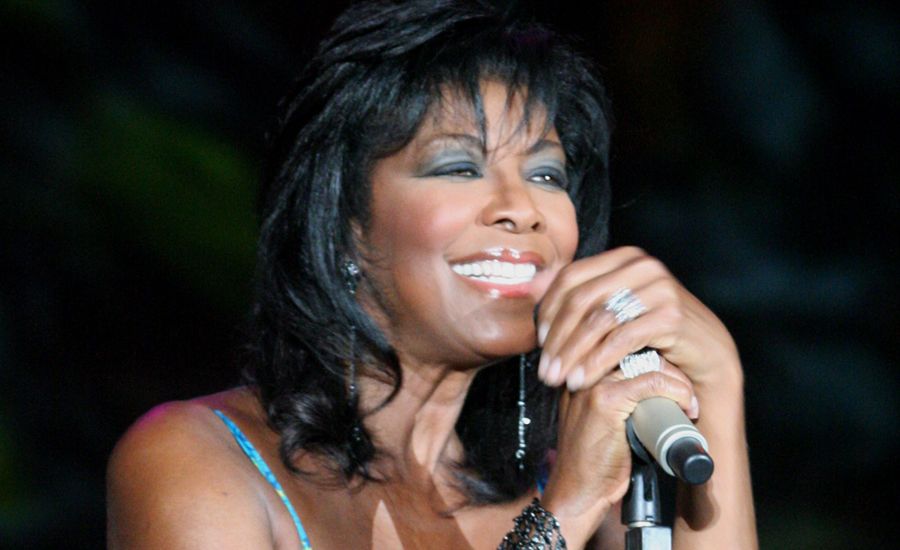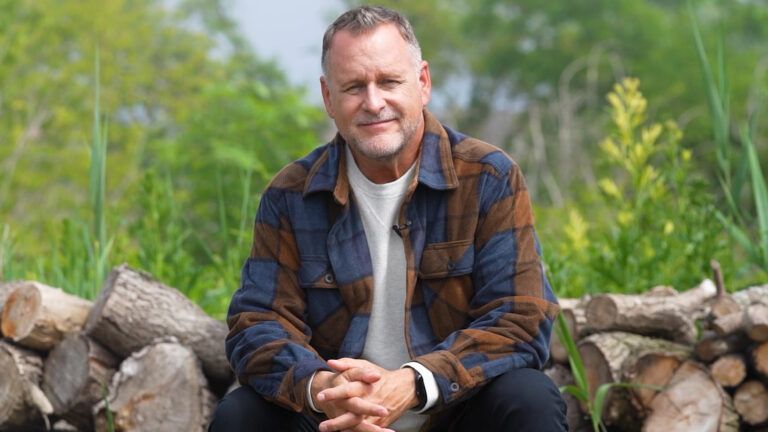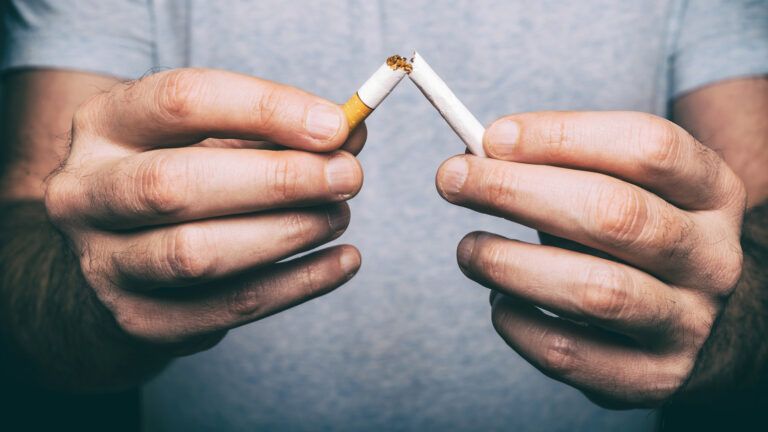Singer Natalie Cole died on Thursday, December 31. We honor her memory by sharing this 2009 story with you.
The winter light was fading as I sat in the office of my counselor Monty at a drug and alcohol rehab in rural Minnesota. It was one of those cruel January days when the sky looks frozen. I was answering questions about my dad, who’d passed away when I was 15. Even now, in 1984, 19 years later, there was a part of me that was frozen too, locked in time.
Being the daughter of Nat King Cole, I was used to this. People asked me all the time what he was like. They told me how much they loved his voice. Hardly a day went by someone didn’t mention him to me. That can wear away at you.
Yet I could still hear him laughing as my sister, Cookie, and I acted out Broadway musicals decked out in his jackets and shoes. Could still see his smile as he waved goodbye before another tour. Could still feel his warm hug when he dropped me off for my freshman year at boarding school in Massachusetts.
SUBSCRIBE TO GUIDEPOSTS MAGAZINE
“That was the last time I ever saw him healthy,” I said to Monty.
Monty leaned forward in his chair. “Natalie, do you think you’ve ever really grieved your father?”
“What?” I said defensively. “He’s been gone almost twenty years now.”
“Grief isn’t bound by time, Natalie. If you want to heal, to get sober, you have to face it. You have to change. Today.” I practically ran back to my room as if fleeing Monty’s words. I closed the door and sat on my bed in the glow of my lamp. Through the window I could see snow falling, muffling the world outside.
An unforgettable silence was what greeted me when I returned home for Christmas in 1964, after my first semester away at school. I rushed to my parents’ bedroom, only to find my 45-year-old father in a rocking chair, his hair white, his skin ashen. He couldn’t get up to hug me. Dad had lung cancer. No one had told me he was sick—Mom thought she was being protective.
It was a Christmas without parties with Dad’s showbiz friends, without him singing about chestnuts roasting, without any music. Foggy with painkillers, he spoke little. Terrified to confront this faint echo of the man my father was, I said even less.
Back at school, my birthday came and went on February 6. I got word Dad had a successful operation. Then the day after Valentine’s Day, I got called back to my dorm from class. My housemother was waiting for me, tears in her eyes. She didn’t have to say it—I knew. Dad had died.
I barely cried, even at the funeral. But I took one of the roses that blanketed Dad’s coffin and tucked it into my Bible. I didn’t want to go back to school so far away, but Mom was determined to put on a brave face. In a few days, I was back in Massachusetts. I would have to learn to forget about my loss.
I went on to the University of Massachusetts, thinking maybe I could be a doctor and help find a cure for the cancer that had stolen my dad from me. The summer before my junior year I began singing, just to make extra money at first. People noticed. They started asking me to do my father’s songs. I was dismayed. I didn’t want to be recognized just as “The Daughter Of.”
The few times I did sing one of my father’s songs, the crowd would get very emotional and so would I. It hurt too much to sing words that I could still hear him singing so beautifully in my mind. Don’t people know how painful this is?
Then came senior year. Maybe it was the prospect of going out into the world, of having to find myself, that made me fall in with a wild crowd. I started using drugs. At first, just occasionally and nothing too strong. But I progressed, quickly, to heroin. Heroin felt like some kind of an answer to pain.
My career progressed too, but right before the release of my first record, I got busted for heroin possession. I was given several months’ probation and was able to kick my habit. This Will Be became a major hit and I won the 1975 Grammy for Best New Artist.
Yet that pain in my soul grew worse. I turned to cocaine. Sometimes I’d quit using for a while. God, bring me down and I’ll never do this again, I’d pray. But soon enough, I’d want to get high again.
One night in 1981 I’d just finished a show with Bill Cosby at the Las Vegas Hilton and was in my room on the twenty-fourth floor when smoke started to fill the halls. The front desk said someone would get me. Before I knew it, the smoke had become impossibly thick. I wet myself down in the shower fully clothed, then came out and sank down onto soaking wet bedsheets on the floor.
I clutched my cocaine pipe. If this is my time, I’m not going straight, I thought. The headline of the story in the next day’s papers came to me: “Daughter of Nat King Cole Dies in Hotel Fire High on Cocaine.” I closed my eyes. If you want to save me, God, don’t let me take a hit off this pipe.
The heavy air closed around me. Just as I put the pipe to my lips, firefighters burst into the room like soot-covered angels and got me out of there.
It hurts me now to say it, but even God’s grace that day didn’t convince me to change. Mom and Cookie finally got me to a rehab center in southern California. After 30 days I walked out of the facility, sped all the way home and got high.
One night in November 1983 my manager, business manager and attorney showed up at my door. I’d worked with them for a while, but they’d never been to my house. We sat in my living room. My eyes darted from one to another. What was up? “We’re worried about you, Natalie,” said Dan, my manager. “We want you to go into rehab.”
I felt exposed, as if the white powder I was addicted to was all over my face. I crossed my arms. How dare they come into my house and tell me my business! Sure, things had been rough lately. I’d had to let some people go because I was broke. Word had gotten around I was unreliable. And I didn’t have many gigs.
“Why do you care?” I snapped. “Worried you won’t be able to make any more money off of me?”
Dan sighed. “Your career could crash and we’d still be okay,” he said. “But we’re afraid if you keep using, you’ll die. We don’t want to be here for that.”
Something cold snaked up my spine: fear. I thought of the fire in Las Vegas, the first day I saw my dad sick, that call from my dorm mother. All those feelings came back in such a rush I could hardly breathe. I didn’t say anything, but I think everyone knew it was my last chance.
Which is how I ended up in this Minnesota rehab, being challenged by Monty to face my feelings about Dad’s death. Sitting in my room, I gazed at my reflection in the circle of lamplight on the window. What would Dad think of what I’d become? “The Daughter Of” had let everyone down.
Maybe I’ve tested God’s patience too much. For years, he’d been giving me wake-up calls and I’d been hitting the snooze. I reached for my Bible, where I’d kept the rose from Dad’s coffin, and opened it. Through it all I’d never let that Bible go. I’d looked at that rose every day until it finally fell apart. Yet its scent still clung to the pages.
I felt like God was still clinging to me, despite all I’d done to push him away. I’d tried to fix my life, to change. Now, finally, in the cold of winter, I realized I couldn’t change myself. Only God could change me, and only if I asked with my whole heart.
For the first time, God became not just someone to turn to in a crisis. He was there when I shed tears for my father night after night, the tears I’d never shed as a teenager. He was there as I struggled to let go of my pain and defiance. He was there when I surrendered myself.
Only then did peace flood in where pain once was, one miraculous day at a time. No, we never forget pain, but we do let go of it. In surrender, we transform ourselves.
I graduated from rehab on May 16, 1984. The icicles had given way to flowering buds, the tight gray sky to a stream of fluffy clouds. At long last, I was ready to sing my father’s songs. Through the magic of a new technology, I was able to record a duet with my dad on his signature song, “Unforgettable.” It resurrected my career, yes, but more than that, it restored me. And a faint scent of a rose came to full blossom again.
Did you enjoy this story? Subscribe to Guideposts magazine.





